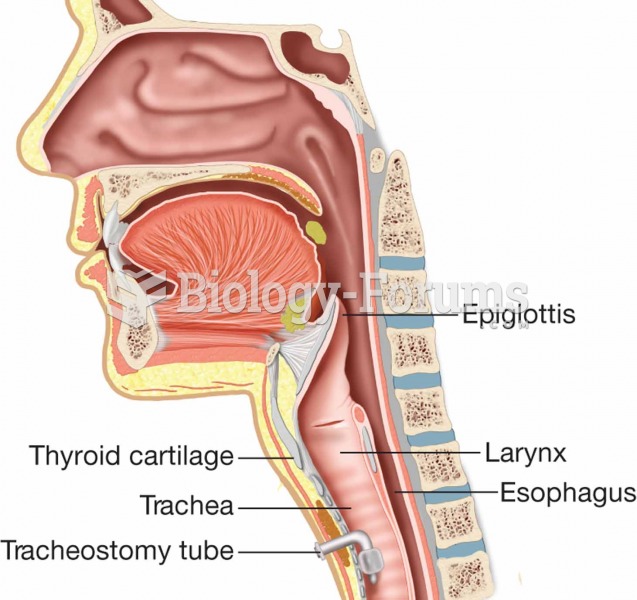|
|
|
The average older adult in the United States takes five prescription drugs per day. Half of these drugs contain a sedative. Alcohol should therefore be avoided by most senior citizens because of the dangerous interactions between alcohol and sedatives.
Though methadone is often used to treat dependency on other opioids, the drug itself can be abused. Crushing or snorting methadone can achieve the opiate "rush" desired by addicts. Improper use such as these can lead to a dangerous dependency on methadone. This drug now accounts for nearly one-third of opioid-related deaths.
Malaria was not eliminated in the United States until 1951. The term eliminated means that no new cases arise in a country for 3 years.
Allergies play a major part in the health of children. The most prevalent childhood allergies are milk, egg, soy, wheat, peanuts, tree nuts, and seafood.
The term bacteria was devised in the 19th century by German biologist Ferdinand Cohn. He based it on the Greek word "bakterion" meaning a small rod or staff. Cohn is considered to be the father of modern bacteriology.
 A tracheotomy tube in place, inserted through an opening in the front of the neck and anchored withi
A tracheotomy tube in place, inserted through an opening in the front of the neck and anchored withi
 Earth’s history spans 4.5 billion years. Geologists and paleontologists have pieced together the his
Earth’s history spans 4.5 billion years. Geologists and paleontologists have pieced together the his
 Mobilize the ankle using the heels of the hands. Place a palm on either side of the ankle just below ...
Mobilize the ankle using the heels of the hands. Place a palm on either side of the ankle just below ...




